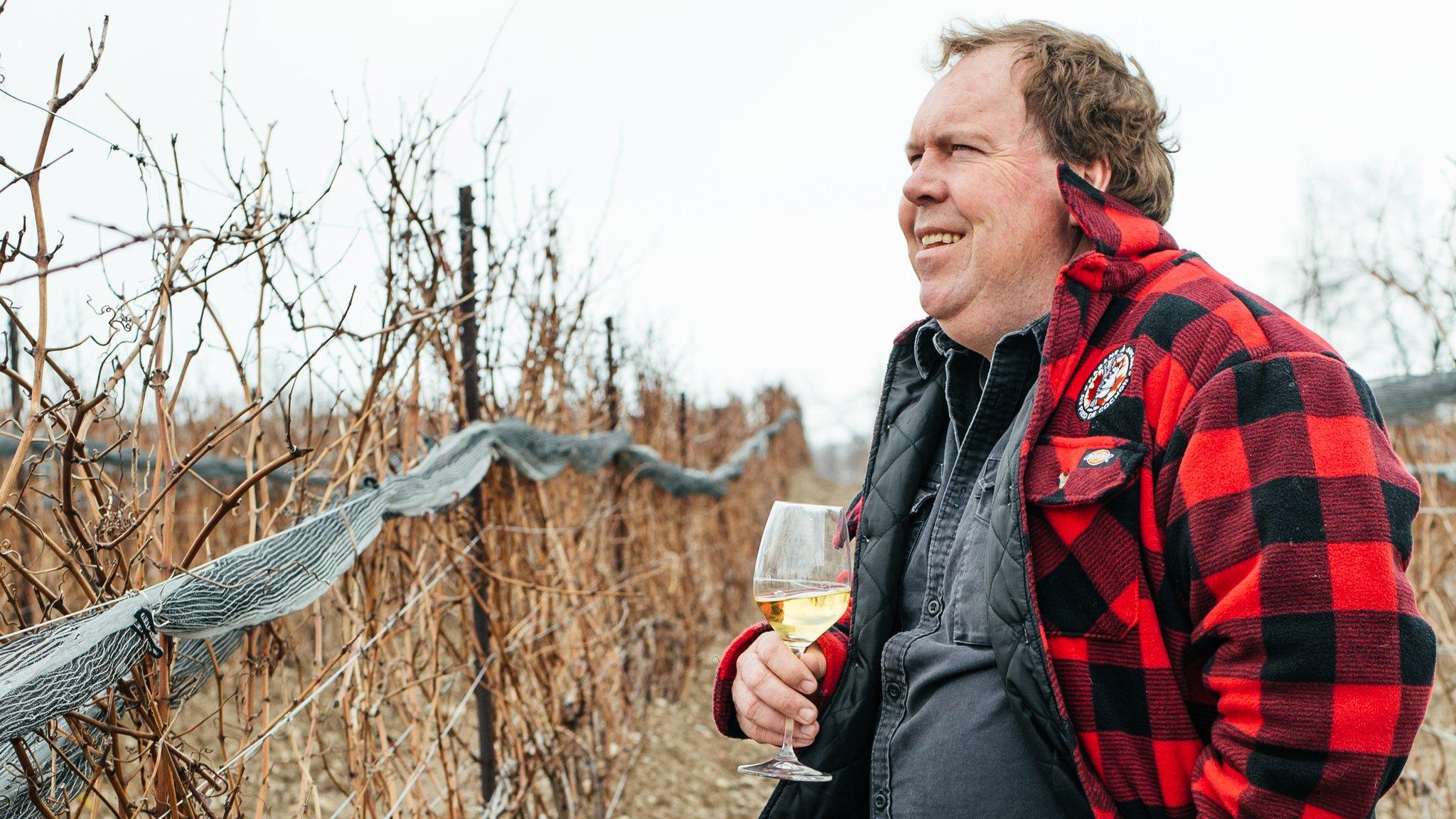Essex 'could rival Champagne for wine production'
- Published
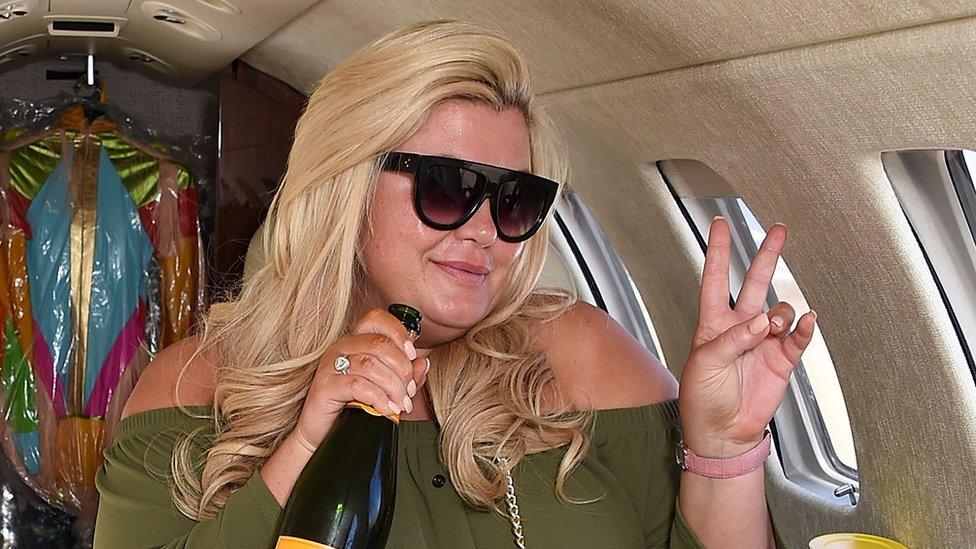
The Only Grape is Essex: TOWIE star Gemma Collins has been pictured enjoying a fine fizz
Essex could rival the Champagne region as a major producer of fizz, experts have claimed.
Scientists identified about 86,000 acres of countryside - with similar traits to the French plonk powerhouse - deemed "prime" land for vineyards.
The areas, including some in Suffolk, had ideal soil, terrain and climate for grape growing, experts from the University of East Anglia (UEA) said.
But they also warned budding winemakers to expect expensive set-up costs.
Climate change had led to "warmer growing seasons" in England and Wales, researchers said.
As a result, areas "where relatively few vineyards currently exist" could have unexplored winemaking potential.
'Fickle weather'
They said Essex, more commonly associated with reality star haunt the Sugar Hut, was drier, warmer and more stable than some more established vineyard locations.
Prof Steve Dorling, from the UEA's School of Environmental Sciences, said the summer's heatwave had led to a "record grape harvest" and "a vintage year for English and Welsh wine".
But, he said, the season had been "quite unusual in terms of weather" and more work was needed to find the best places to plant vineyards able to withstand the UK's "often fickle weather".
Lead author Dr Alistair Nesbitt echoed Prof Dorling, and said there was "definitely room for improvement" but it was hoped the research could "help boost future productivity".
Southend Sparkles
Could we one day see these brands on our supermarket shelves?
Brutlingsea
Moet & Clacton
Bolly-riccay
Cava Island
Chugwell
Proseccolchester
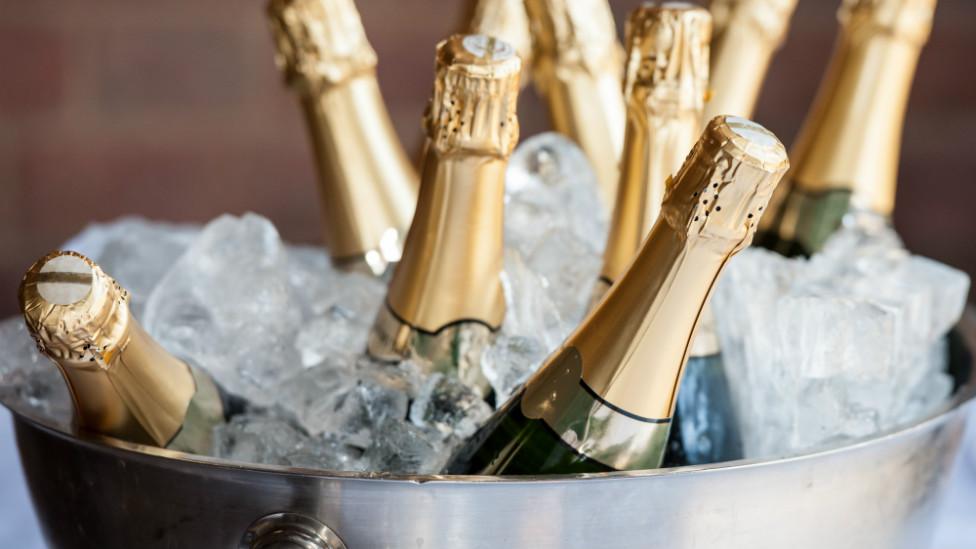
Spot of Basil-Dom Perignon, anyone?
The research, funded by the Natural Environment Research Council, has been published in the Journal of Land Use Science.
Charles Macaudy, manager of Wyken Wines, near Bury St Edmunds, said climate change had enabled East Anglia vineyards to grow the same varieties of grapes as vineyards in Champagne.
Despite it being the "driest area of the UK and also the sunniest", those varieties would not previously grow successfully in East Anglia.
"Now we can make sparkling wine more like Champagne, but even better," he said.
But Mr Macaudy said the spring frost could make or break the harvest, after 80% of their crop was wiped out in April 2017.

You may also like:
- Published1 October 2018
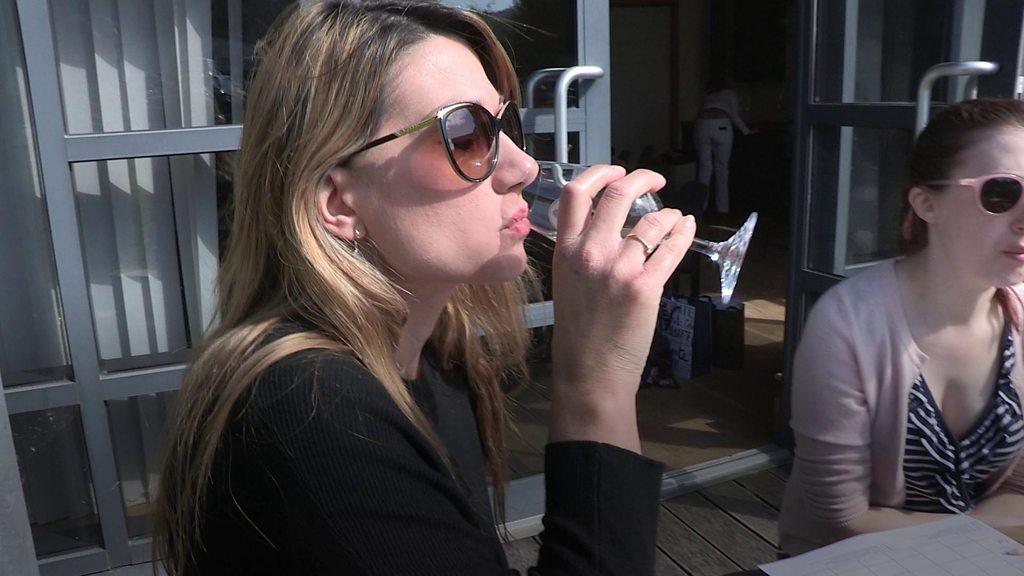
- Published13 November 2017
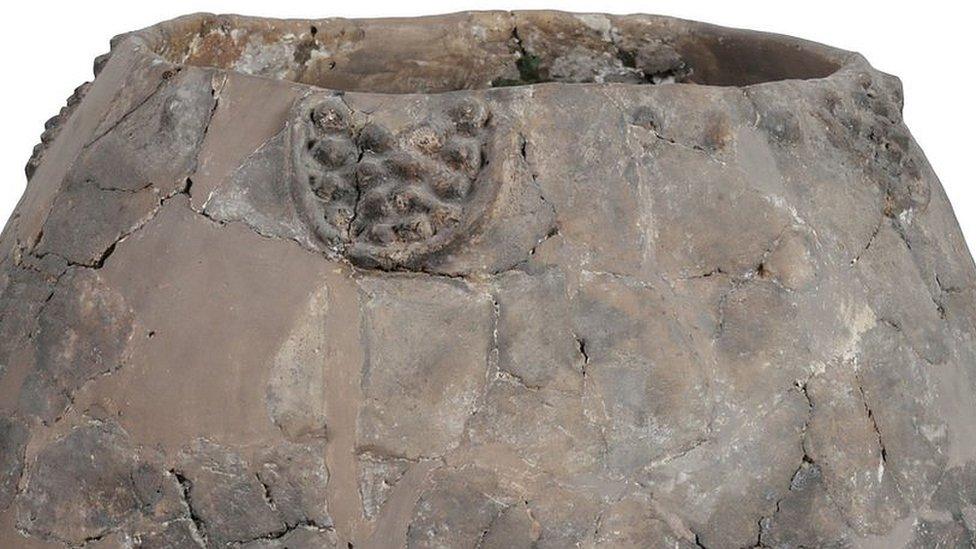
- Published18 October 2017
